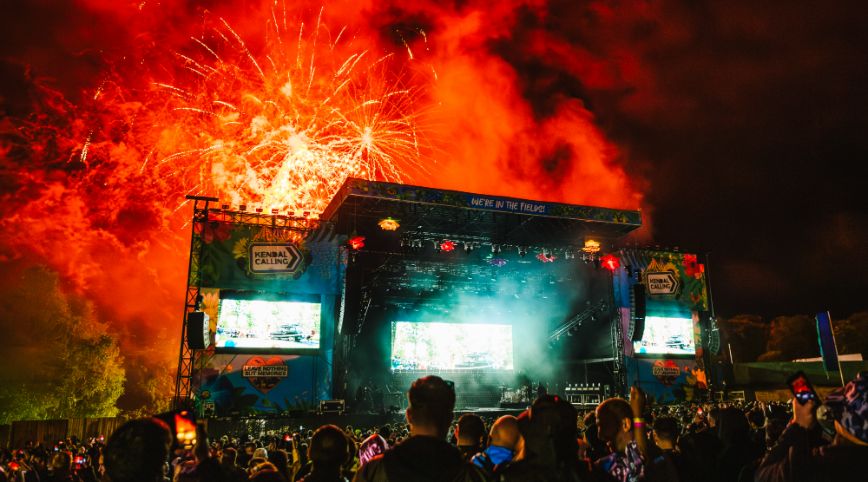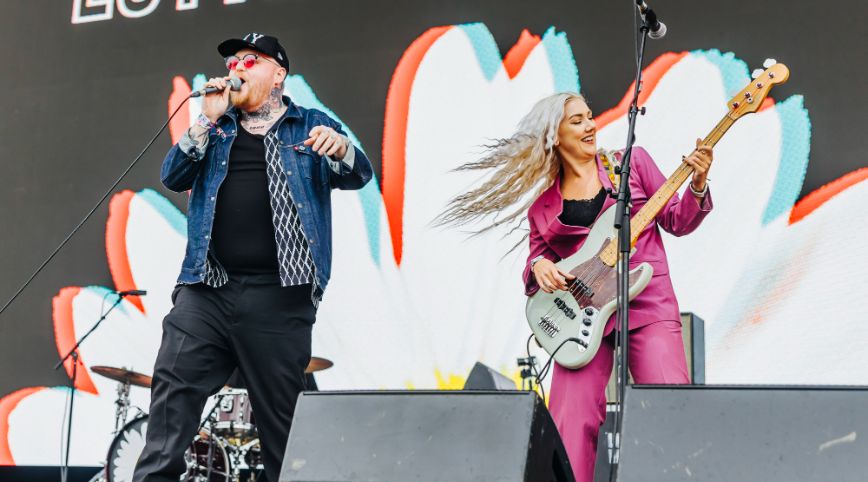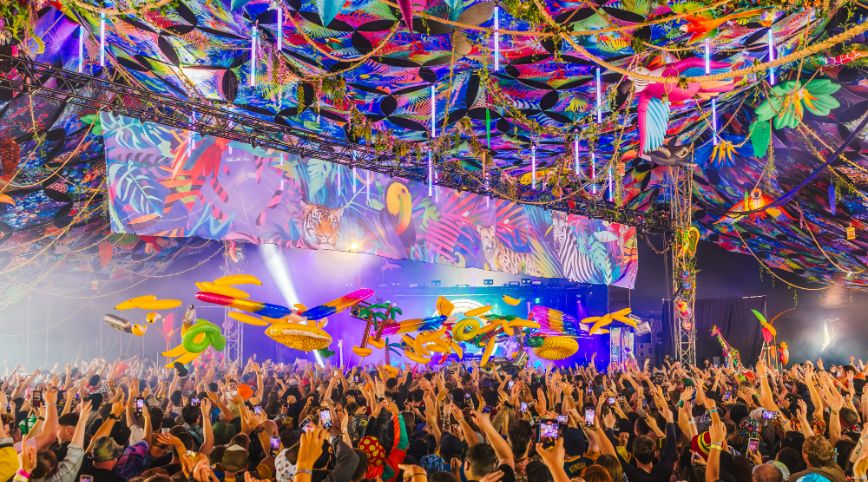December 13th, 2023 | Alex
Steps to Running a Successful Event PR Strategy
Running a PR campaign for your live events requires a solid amount of effort.
Expect lots of planning as well as managing various activities and campaign ‘moments’ to ensure the strategy pans out how you want it to.
In this post, we will look at the steps involved in running a successful PR strategy for your live event.

Steps to Running a Successful Event PR Strategy
Define Goals and Objectives
Every strategy starts with a set of objectives or goals.
Clear objectives provide a tangible framework for the entire PR campaign, offering a precise understanding of what the event aims to achieve.
When you know your overall goals you’ll be able to develop ways of achieving them.
Successful PR campaigns align these goals with the overall mission and values of the organisation.
When it comes to PR for your live event there can be various goals to consider, including:
- Brand Awareness.
- Media Coverage.
- Audience Engagement.
- Community Relations.
- Thought Leadership.
- Product or Service Launch.
- Ticket Sales.
- Lead Generation.
- Social Media Presence.
These goals are often interconnected, and the selection of specific goals depends on your event’s overall objectives and the context of the PR campaign.
You could use SMART goals when planning your goals and objectives for your PR campaign.
What are SMART Goals?
SMART is an acronym that represents a framework for setting effective and actionable goals.
The components of SMART goals are:
- Specific – Clearly define the goal in detail. Avoid vague or broad statements. Be specific about what you want to achieve and why it is important.
- Measurable – Establish concrete criteria for measuring progress toward the goal. Define how you will track and evaluate success, making it quantifiable and tangible.
- Achievable – Ensure that the goal is realistic and attainable. Consider the resources, time, and effort required to reach the goal. It should challenge you but still be possible.
- Relevant – Align the goal with broader objectives and the overall mission. It should be relevant to your aspirations and contribute to the larger strategy.
- Time-bound – Set a specific timeframe for achieving the goal. This creates a sense of urgency and helps in prioritising tasks. It also provides a clear deadline for evaluation.
Identify Target Audience
Understanding the demographics, interests, and preferences of your audience enables you to craft messages that resonate specifically with them.
This targeted approach increases the likelihood of capturing the attention of those most likely to engage with the event, attend, and actively participate.
When you know your audience you get insight into what platforms they are on and where they give most of their attention.
This is great for you, as you can get targeting these places.
The audience you’re targeting in your campaign is the same audience that will be attending your event.
This will help as you should already have a sense of the types of people who have attended past events.
Honing in on the right demographic, allows you to optimise your resources and deliver more personalised content.
You’ll enhance the overall success of the event by fostering a meaningful connection with the intended audience.

Craft a Compelling Story
A well-crafted story not only captures attention but also resonates emotionally with your target audience.
It transforms the event from a gathering of individuals into a captivating experience, offering a compelling reason for people to participate or engage.
A narrative that communicates the event’s significance, values, and impact, creating a memorable impression.
Music festivals are a great example of storytelling.
They invite people from all over the world to come to congregate and celebrate the universal language of music.
There is a sense of belonging that comes with attending music festivals.
No matter who you are or where you’re from, you can attend the event and enjoy the festivities.
The lack of judgement and sense of belonging makes for a great narrative that entices mass crowds.
Build Media Relationships
These relationships are vital for securing valuable media coverage, whether through traditional outlets or digital platforms.
By cultivating connections with journalists, editors, and influencers, you can ensure that your messages reach the right audiences in a timely and compelling manner.
Media relationships also provide opportunities for in-depth coverage, interviews, and behind-the-scenes insights, which can significantly enhance the event’s visibility and public perception.
A positive rapport with the media fosters an environment where journalists are more likely to view the event as newsworthy.
It’s great to have news representatives at your event so they can get a glimpse of the live-action.
Building and maintaining media relationships is an investment that pays dividends in terms of widespread and impactful event promotion.
Create a Media Kit
A media kit provides journalists and influencers with easily accessible and digestible content, including event details, press releases, high-resolution images, key facts, and relevant contact information.
This not only saves valuable time for media professionals but also ensures an accurate and consistent representation of your event’s key messages.
The media kit acts as a strategic tool for shaping the narrative surrounding your event, offering a curated selection of materials that align with the overarching PR goals.
Creating a media kit as part of an Event PR strategy offers several key benefits:
- Efficient information sharing – This efficiency saves time for media professionals and increases the likelihood of accurate reporting.
- Consistent messaging – By providing a carefully curated set of materials, a media kit ensures that journalists receive consistent and accurate information about your event.
- Visual appeal – Including high-resolution images and multimedia assets in the media kit adds visual appeal to the event’s story. Compelling visuals can increase the chances of media outlets using the provided materials in their coverage, making your event more engaging for their audiences.
- Ease of access – Digital media kits can be easily shared through email or uploaded to a website for quick access. This accessibility ensures that journalists can retrieve the necessary information at their convenience, even if they are working under tight deadlines.
- Increased media coverage – Providing journalists with a comprehensive media kit increases the likelihood of media coverage. Journalists are more likely to engage with events that offer readily available, well-packaged information, making it easier for them to develop compelling stories for their audiences.
- Strategic messaging control – A media kit allows you to exert a degree of control over the narrative surrounding your event. By selecting key messages and materials, you can influence how the event is perceived by the media and, consequently, the public.
Press Releases
Draft and distribute well-crafted press releases announcing your event.
Highlight key details, such as the purpose, date, location, and any notable participants or activities.
Send these releases to your media contacts and publish them on your website.
Press releases contribute to shaping the narrative around the event, allowing you to control the messaging and highlight key aspects that align with the overall PR goals.
Utilise Social Media
Social media plays a significant role in event PR strategies now more than ever.
A few decades ago PR was solely reliant on media outlets to get exposure and coverage. Now with social media taking everyone’s attention, they give huge potential to PR professionals.
Social media facilitates real-time interaction, allowing you to build anticipation, share updates, and connect directly with attendees.
Thanks to social media you can reach a new audience that wasn’t available a short time ago.
Social media is ubiquitous so the world is quite literally at people’s fingertips now.
A survey was carried out that indicated 82% of people said social media changed how they work to some extent within PR.
Social media is not just a way you can reach your audience but also reach out to other journalists and media professionals.
With most journalists having their own social media channel you’ll be able to access them easily, simply by sending a private personalised message or voice note.
The sheer volume of social media platforms allows you to deploy your PR strategy using many different outlets.
This wide variety should be utilised depending on your resources. If you have a small team then focus on fewer platforms that will give you the most benefit.
If your budget is bigger, experiment with more platforms to widen your audience.

Engage Influencers
Create an influencer marketing strategy and collaborate with influencers or thought leaders in your industry who align with your event’s theme.
Their endorsement and promotion can significantly amplify your reach.
While they aren’t a necessity, the benefits of using influencer marketing as part of your PR campaign are hard to ignore.
They can help:
- Build authenticity.
- Boost ticket sales.
- Increase brand awareness.
- Add more value to your audience.
These are just a few of the benefits of influencer marketing for your live event.
It’s important to remember that finding influencers for your live event can be tricky and time-consuming.
That’s why it’s best to use experts who know how to find relevant influencers.
At Gala PR we have a talent booking team who have vast experience in finding the right influencers for your live event.
Organise Pre-Event Press Conferences or Interviews
You want to build as much anticipation and excitement as possible when it comes to hosting live events.
Press conferences and interviews provide an opportunity for media coverage and they generate mass anticipation.
Having interviews and conferences lets the audience know what to expect and what to get excited about.
Press conferences provide an opportunity to clarify any misconceptions or misinformation surrounding your event.
It allows you and performers to address concerns, share accurate details, and ensure that your audience has the correct information about the event.
Live events will usually have several sponsorship deals involved.
These interviews and conferences allow you to acknowledge them and thank them for their support.
This can build a real trusting bond with sponsors who will be more willing to stay on should you host another event.
Some of the biggest highlights of an event happen in the interviews and press conferences involved in the build-up.
These moments get captured on camera and stay in circulation for many years. This highlights just how much attention these interactions attract.
Coordinate On-Site Media Coverage
Designate a media area at the event venue and provide support for journalists and photographers.
Facilitate interviews with key speakers and ensure that media representatives have access to important information.
By providing a space and area for the media to conduct their coverage they can capture the atmosphere of your event.
The aim is for this atmosphere and excitement to capture the attention of viewers.
Therefore, persuade them to attend your event next time.
This is all part of the overall marketing cycle which is designed to keep the event relevant and entertaining for all those who have an interest in your event.
Evaluate and Analyse
Assess the success of your PR strategy by analysing media coverage, social media engagement, and overall event impact.
Identify areas for improvement and gather insights for future events.
Analysing the data thoroughly allows you to make informed decisions about how the event should be run going forward.
Events will change slightly year on year due to post-evaluation.
By doing an evaluation you can ensure that your current audience is kept happy, and excited and that a new audience can be attracted to the event going forward.
In the evaluation process, you’ll be able to tell if you achieved your goals and objectives set out in the beginning stages of the PR strategy.
Experts in PR for Live Events
By following these steps, you can create and execute a comprehensive event PR strategy that will be a huge factor in whether or not your event is a success or not.
While it’s possible to do all of this by yourself, it’s also a wise decision to call in the help of some experts.
We’re a PR agency that specialises in delivering comprehensive PR strategies for live entertainment events.
We can come in and take the PR side of things off your hands, giving you more time to do what you do best.
Contact us today if you would like to know more about how we can help you deliver a successful event PR strategy.